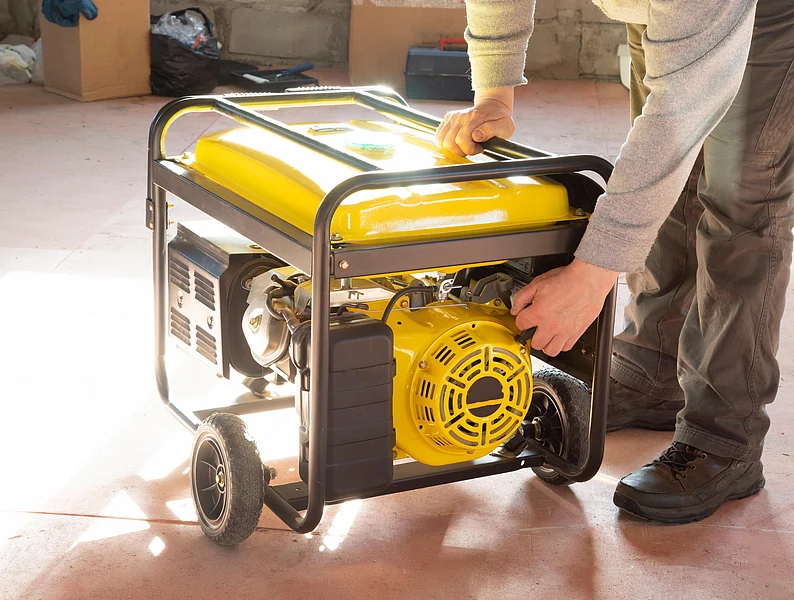Get Healthy!

- Cara Murez
- Posted August 30, 2023
As Another Hurricane Targets Florida, Experts Warn of Carbon Monoxide Dangers
Hurricane Idalia is expected to make landfall in the United States Wednesday.
Idalia was forecast to be a powerful Category 3 storm by the time it reaches Florida's Big Bend, an area prone to storm surge that stretches from Tampa to just south of Tallahassee. It's also expected to hit eastern parts of Georgia and the Carolinas before heading out to sea late Thursday or early Friday.
As all of this happens, the U.S. Consumer Product Safety Commission (USCPSC) is urging everyone in the storm's path to prepare and keep carbon monoxide safety top of mind.
Portable generators can be a source of carbon monoxide (CO) poisoning, the commission emphasized.
CO is colorless, odorless and can kill in minutes, rendering someone unconscious before they even begin to experience telltale signs like nausea, dizziness and weakness.
Nearly 100 people a year die in the United States from CO poisoning from portable generators, according to the CPSC.
Never use a portable generator inside a home, garage, basement, crawlspace or shed, the CPSC urges. Even open doors and windows will not prevent lethal levels of CO from building up.
Use portable generators outside only, at least 20 feet away from the house. Direct the generator's exhaust away from the home and any other buildings that someone could enter. Close windows and other openings in the path of the generator's exhaust.
Do not operate a generator on an outside porch or in a carport, CPSC says. They are too close to the home.
Follow portable generator instructions about electrical shock hazards in bad weather, it adds. This can include using an NFPA-rated non-combustible generator tent, or waiting to use the generator until rain passes.
Make sure your generator has been maintained properly. Read and follow instructions and warnings on the generator and in the owner's manual.
If you are shopping for a generator for use later this hurricane season, look for portable ones with a CO shut-off safety feature. This is designed to stop the generator automatically when high levels of CO are present near it.
These portable generator models may be advertised as certified to the latest safety standards -- PGMA G300-2018 and UL 2201. These are estimated to reduce deaths from CO poisoning by 87% and 100%, respectively. The UL 2201-certified models have reduced CO emissions in addition to the CO shut-off feature.
Generators aren't the only concern. Be sure your smoke and CO alarms are working. Install battery-operated CO alarms or CO alarms with battery backup on each level and outside separate sleeping areas at home. Interconnected CO alarms are best.
Test CO and smoke alarms monthly. Replace batteries if needed. Never ignore an alarm when it sounds. Get outside immediately. Then call 911.
Charcoal and candles present additional dangers during the storm.
Never use charcoal indoors, because deadly levels of CO can build up. Do not cook on a charcoal grill in a garage, even with the garage door open.
Use flashlights or battery-operated candles instead of candles that require a flame. If you do use candles, do not burn them on or near anything that can catch fire. Never leave burning candles unattended. Extinguish candles when you leave a room and before sleeping.
Use caution around appliances if they've gotten wet. Do not touch wet appliances that are still plugged into an electrical source.
Before using these appliances, ask a professional or your gas or electric company to evaluate your home and replace all gas control valves, electrical wiring, circuit breakers and fuses that have been under water.
Hurricanes may also lead to gas leaks. If you smell or hear gas leaking, leave your home immediately and contact local gas authorities from outside the home. Do not operate any electronics, such as lights or phone, before leaving.
More information
The U.S. Centers for Disease Control and Prevention has more on hurricane preparation.
SOURCE: U.S. Consumer Product Safety Commission, news release, Aug. 29, 2023

